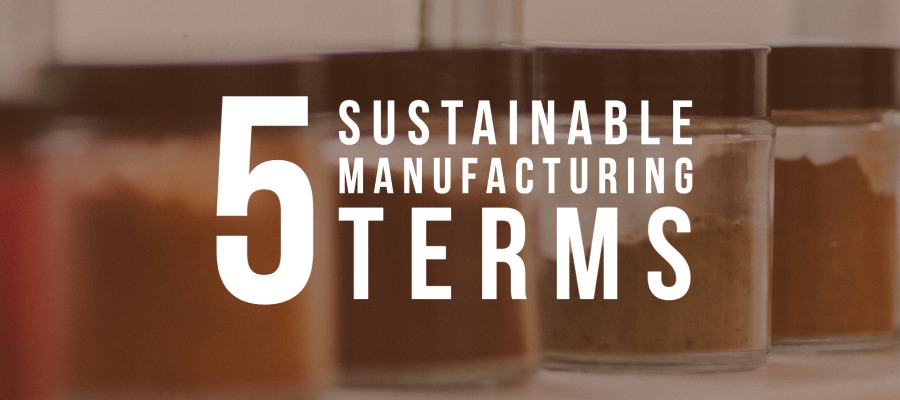
Sustainable Manufacturing: 5 Terms to Know
The Environmental Protection Agency (EPA) defines sustainable manufacturing as “the creation of manufactured products through economically-sound processes that minimize negative environmental impacts while conserving energy and natural resources.” As society continues to become more aware of the impact we have on our environment and the responsibility we have to protect our planet, many businesses have begun to think about the importance of sustainability in a variety of aspects of their work. In addition to caring for the planet, sustainable practices help companies reduce their costs and waste and enhance safety. They also help build trust in the company’s practices. There are many nuances when it comes to sustainable manufacturing.
To understand the many elements behind this phrase, we compiled a list of five terms to know about sustainable manufacturing.
On-Demand Manufacturing
On-demand manufacturing is a practice where companies only manufacture the required number of products they need when they are needed. This practice eliminates the need for companies to have large amounts of products in their inventory. Companies produce products as they are being sold. This limits the overproduction of goods that is common in many industries, meaning less product ends up in landfills. Another common term for on-demand manufacturing is cloud manufacturing.
Sources: 3 Benefits of On-Demand Manufacturing (TotalRetail) and Eco-Friendly Choices on Earth Day & Every Day (Domanda Design)
Circular Economy
The circular economy is the concept of completely eliminating the production of waste. According to the Ellen MacArthur Foundation, the circular economy is driven by three principles: eliminating waste and pollution, circulating products and materials, and regenerating nature. This process is important when it comes to our ability to slow climate change. It requires everyone to think differently about their consumption. For example, reusing products rather than discarding them and purchasing or creating new products with our already limited resources.
Sources: Circular Economy (United Nations Conference on Trade and Development) and Circular Economy Introduction (Ellen MacArthur Foundation).
Corporate Social Responsibility (CSR)
Corporate social responsibility is a commitment by a business to continue to aim to be accountable in a variety of ways, both in the workplace and in society at large, while also contributing to economic development in the community. There are four main types of CSR that companies can engage in: environmental initiatives, charity, ethical labor practices, and volunteer projects. Some elements of corporate social responsibility are even written into regulations and companies can also receive certifications from third-party assessments that help confirm their commitments.
Sources: What is Corporate Social Responsibility? (Business News Daily) and How Communities Have Defined Zero Waste (Environmental Protection Agency)
Zero Waste
Zero waste is a term that considers the entire life cycle of a product in both its use and design. The term zero waste can have a broader definition when thinking about sustainability at large. When it comes to manufacturing, this term references an approach to design where products are created to be reused, repaired, or recycled. Beyond the product itself, companies can embrace zero waste practices by working to minimize the amount of waste they create and limit their consumption.
Sources: Glossary of Sustainable Manufacturing Terms (Environmental Protection Agency) and How Communities Have Defined Zero Waste (Environmental Protection Agency)
Triple Bottom Line
Triple bottom line is a business theory where companies focus on a baseline standard including profit, people, and the planet. (aka: The three Ps). This concept embraces the idea that companies should be committed to caring about more than just their financial profits. They have an obligation to care about their community at large. This also helps the company do well in the long run.
Sources: The Triple Bottom Line: What is It & What it’s Important (Harvard Business School) and Glossary of Sustainable Manufacturing Terms (Environmental Protection Agency)
Share this post
Author
DESIGN/COLOR TRENDS AND AWESOME INFORMATION IN YOUR INBOX
Sign up for our monthly trend letter




